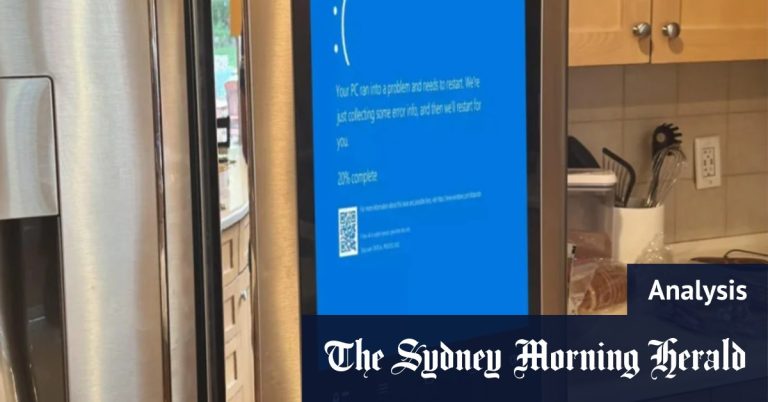The devices you probably think of when thinking of a smart home — lights, locks, blinds, speakers, thermostats — are similar to their non-smart counterparts, except they have a computerized element with connectivity. If you lose that element due to an internet outage or a more specific service issue, they'll still work, just maybe not as smart.
Loading
Smart lights can still be turned on at the wall, smart locks can still be opened with a key or number pad, smart blinds can still be operated with a chain or button, some smart cameras will continue to record or monitor, and most smart doorbells will continue to make a sound. Local network features such as scheduling may still work depending on your settings, but any functionality that requires the internet will stop.
The more real danger isn't that an outage will trap us in our homes or hold the food in our fridge hostage, but that we'll become so accustomed to our smoothly working smart homes that we won't have the alternative when an inevitable outage, however brief, takes that away from us.
Just as many people struggle to get directions to new places when Google Maps has issues, a down home connection can cause major disruptions to household routines and habits.
Given the diversity of smart home setups and individual devices, there's really no analogue for enterprise Windows PCs to mitigate a CrowdStrike-like smart home outage, but a Google Cloud issue could certainly take down remote access to some entire smart homes, as it did in 2019. An Amazon cloud outage could have a similar impact on some homes.
Individual households may also be affected if they rely solely on a single hub or technology for their smart home needs. In 2021, US company Insteon went bankrupt after selling millions of high-performance hubs designed to be installed in homes and hardwired to all kinds of connected devices. When you turned off the server, you also turned off most of the home's functionality. Smart home technology is trending towards a de-centralized approach using open standards, but anything that relies on power and the internet is vulnerable to some form of power outage.
Smart locks allow you to secure your door via Wi-Fi, but also have a physical backup method.
Other Smart Home Threats
If there's one thing we can learn from the CrowdStrike outage, it's that even the most unlikely edge case issues will eventually occur and have severe impacts. Smart homes, by definition, expose very sensitive elements of our lives to the internet. While they are generally secure, we need to be mindful of edge case disaster scenarios.
Take for example a smart lock, which has the same or even greater security as a traditional lock: security is achieved through the encryption the service uses for communication between the lock and your smartphone, as well as the encryption of your home's Wi-Fi, so hackers can't easily access the mechanism.
The same goes for security cameras and doorbells: given the protocols that these devices use and those of your home router, they are generally very difficult to exploit.
Loading
But in the past, smart home manufacturers have failed to secure their products properly, resulting in breaches — for example, a baby monitor was accessible over the public internet, allowing outsiders to view the video stream and talk through the device.
Smart home devices are generally resistant to so-called zero-day vulnerabilities (security holes that criminals find and exploit before the manufacturers notice them) thanks to the security of the home network, so while a poorly designed device may be exposed, it is highly unlikely that a criminal could use it to gain access to other connected devices in the home.
But every smart home relies on internet routers and hubs to maintain its smart functionality, and those devices need to be updated frequently to stay secure and efficient.
I've never heard of a dodgy update causing widespread router crashes, but until last week I'd never heard of a mass crash of corporate Windows PCs either. If that happens to you, remember that you can still open your fridge.
Get the latest news and reviews on tech, gadgets, and gaming every Friday with our Technology newsletter, sign up here.


